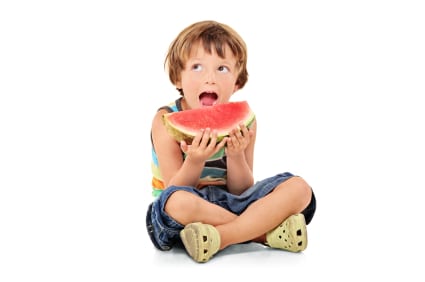Mothers know that a healthy diet is vital for a healthy body. The vitamins and minerals found in fresh vegetables, fruit and milk build strong muscles and bones. What some mom might not realize, however, is that some foods feed the brain. These foods improve brain function, concentration and memory.
Source of Energy
Many of the foods that feed the brain are valuable because they provide a lasting source of energy. This steady source of fuel allows a child to perform better at school than foods that provide temporary bursts of energy which are followed by a crash. Other foods are composed of vitamins and minerals that do everything from forming memory stem cells to producing neurotransmitters.
What Foods?
Foods high in protein, whole grains and fiber provide your child’s brain with steady fuel without crashing. This is because they are digested slowly. Foods that are high in antioxidants improve memory, thinking skills and protect the brain. Foods that contain DHA literally build up your brain, according to AskDrSears.com. Choline and omega 3 fatty acids aid in concentration and improved brain activity.
Brainy Meals
Start your child’s day off right by giving her some whole-grain oatmeal, which will provide her with lasting energy. Improve her memory by adding a glass of orange juice, which contains vitamin C. Vitamin C is an antioxidant that will improve her brain function. Add an egg, which contains choline to nudge her memory. For lunch, try some turkey, which contains an amino acid that produces the neurotransmitters that will help her remain alert, and vitamin-D fortified milk. An afternoon snack of DHA-fortified yogurt will continue to build her brain power, as will some apple slices dipped in peanut butter. For dinner, try sneaking in some iron-rich foods, such as a lean cut of beef, or even fresh spinach hidden in a garden salad.
What NOT to Feed Your Kid
Feeding the brain is not just about choosing the right foods. It’s also about limiting a child’s exposure to the chemicals that are used to preserve foods, as well as artificial flavors and colors. According to the Center of Ecoliteracy, the consumption of preservatives, artificial colors and artificial flavors is linked to poor behavior in children as young as 3. Wholesome, naturally grown foods are best for children.
Expert Insight
Children are notoriously picky eaters, but brain development is not something to take lightly. At first, your child may forcefully reject new, healthier foods, but if you are patient and offer them consistently, your child will soon come around to eating these more nutritious choices.





